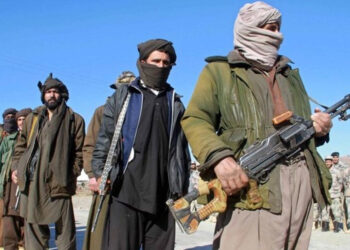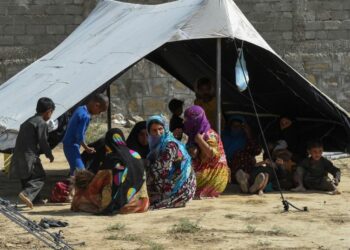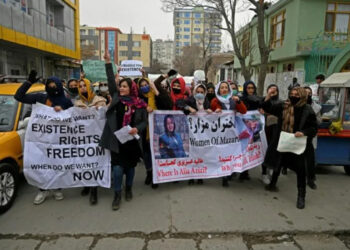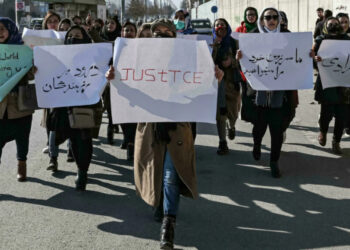Historians often quip that Afghanistan is a graveyard of big empires. From Alexander the Great to the British Empire and the Soviet Union, major powers collapsed as soon as they withdrew from this landlocked territory. Similarly, there is no sign in the offing how America’s longest war may end, illustrating the daunting task of building a functioning state in Afghanistan.
Former President Barack Obama wanted a quick victory in Afghanistan as soon as he assumed the presidency and gambled on sending more troops in the hope of knocking out the Taliban before NATO’s planned exit in 2014. The Taliban held its breath until NATO left the country and started conquering town after town, underscoring the vulnerability of the Afghan security forces.
Under President Donald J. Trump, Pentagon’s emerging strategy in Afghanistan will likely do nothing more than maintaining the status quo until it is time to hand the quagmire off to the next U.S. administration, experts and former government officials told The Globe Post.
The plan appears to hinge on training up Afghan government forces while, according to some analysts, shadowy elements outside the chain-of-command may be called upon to fend off the Taliban.
U.S. military leaders have for months been mulling deploying an additional 3,000 to 5,000 troops to train and advise Afghan security forces with a key focus on boosting special operations and intensifying air support.
On Thursday, Defense Secretary James Mattis met with NATO counterparts in Brussels to fill in the plan’s outstanding gaps, although the final Afghan strategy probably will not be released until mid-July.
Earlier this month, Mr. Mattis told lawmakers the U.S. was “not winning” the war, and the facts bear that out. The Taliban reportedly control more territory now than they ever have since 2001, while Afghan security forces have been suffering from high attrition rates, high casualty rates, and major capability gaps.
Former White House National Security Council adviser Gwenyth Todd told The Globe Post the latest so-called strategy would likely not accomplish much beyond preventing terrorist groups from using Afghanistan as a training and operational base.
“The number of troops involved in this particular deployment seems too large simply to provide training, but too small to have any decisive, transformative effect,” Mrs. Todd said.
The former Clinton Administration official argued that, like the British and Russians before them, the Americans would fail to build up a central government in Afghanistan capable of extending its writ to the periphery, no matter how many troops are on the ground.
“The history of Afghanistan shows a series of internal fragments coexisting until a force brutal enough to pull together these fractured elements steps in for a limited time,” she explained. “Even after so much time and sacrifice, I don’t know of any government in Kabul – or in the case of the Taliban, Kandahar – that has ever truly controlled the entire country from the Durand Line to the Amu Daria River.”
Middle East Institute scholar Dr. Marvin Weinbaum described the Pentagon’s new forthcoming plan as a “maintenance” strategy designed to keep the Taliban in check while boosting government capabilities.
“We [the United States] don’t expect to win, but can’t afford to lose,” Mr. Weinbaum said. “The larger strategy here is to ‘buy time’… because we don’t have any other choice.”
Mr. Weinbaum, who served as an analyst for Pakistan and Afghanistan in the State Department’s Bureau of Intelligence and Research, suggested that the key was for the Afghan government to demonstrate that it had “staying power.” If Kabul could show that time was on its side rather than on the Taliban’s, he added, the government might be able to start a process of reintegration while marginalizing hardcore senior leaders deemed irreconcilable.
Yet University of Arizona History Professor David Gibbs said he does not see a strategy at all – political or military.
“No one even pretends the U.S. can defeat the Taliban, or that the Afghan army will become strong enough to resist on their own,” Mr. Gibbs claimed. “The main objective seems for U.S. officials to save face, to avoid being the ones who ‘lost’ Afghanistan, and then pass the quagmire onto the next set of officials, who will face the same dilemma.”
It is fair to wonder how such a relatively small number of troops in Mr. Trump’s surge plan could really change any of the dynamics on the ground, although the U.S. has other options, including irregular forces.
Thomas Ruttig, Co-Director of the Afghanistan Analysts Network, said the CIA and other U.S. special forces may pursue a “parallel strategy” to stem the Taliban tide by leveraging auxiliary and semi-governmental factions – such as Afghan local police, militias, and other groups that operate “outside of any Afghan chain of command.”
Mr. Ruttig, a former German diplomat and UN political officer, warned that such a strategy comes with significant risks because U.S. forces may end up working with and rewarding malign actors such as warlords which can exacerbate local conflicts.
Some military experts, on the other hand, look at President Trump’s potential surge strategy as an improvement upon his predecessor’s approach. Former Deputy Assistant Secretary of Defense, Steven Bucci, said Mr. Trump was at least smart enough not to broadcast an exit date.
“They have not given specifics or time limits. This alone will add some effectiveness over the Obama technique of telling everyone exactly what you will do and not do,” Mr. Bucci claimed.
Mr. Bucci also noted that there was still room for more “out-of-the-box” thinking. He said he knew that the Pentagon was considering a more intelligence community-led effort wherein the military would only provide special response capabilities and logistics.
Overall, however, as Mr. Ruttig underscored, “the Afghan problem is not primarily a military one.” The number of soldiers is irrelevant when the government is incapable of solving fundamental political and socio-economic issues, he maintained.
“These troops, and even 30,000 more… will not win the war,” he warned. “The Taliban have survived 16 years of military onslaught and proven resilient. They make more progress than the government… [and] still have the initiative.”
********
This article was possible thanks to your donations. Please keep supporting us here.




















